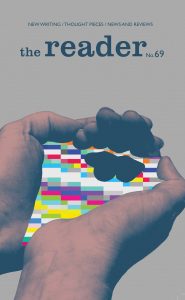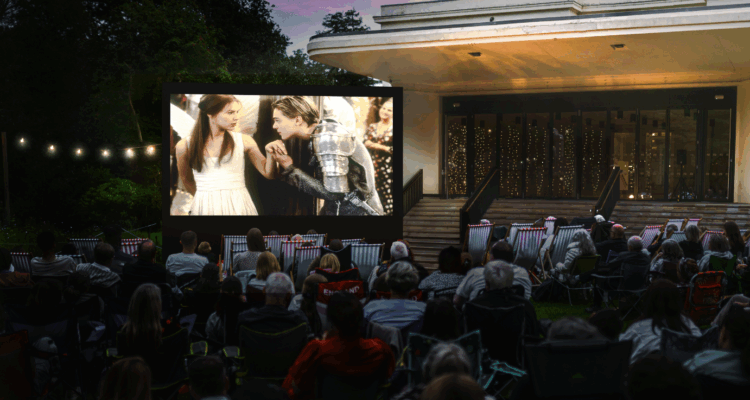The Reader 69
The time has come round again to whet your appetite for some new reads, and with this quarter’s issue the featured interview takes this theme head on. Buy your copy online now.
Laura Freeman, interviewed by The Reader’s Fiona Magee, talks openly about her new book, The Reading Cure: How Books Restored My Appetite, discussing her eating disorder and her long, ongoing process of recovery – and how literature has helped.
“During the worst period of my illness, between schools, exhausted by a walk to the end of the road on matchstick legs, reading gave shape to each day…. What I remember of the worst times is emptiness. … Emptiness today and emptiness tomorrow. The only way to bear it was to measure the days in books. Propped up in bed and folded into the pages of the day’s book, I could forget, briefly, wonderfully, the threat of dinner.”
Laura Freeman
Freeman intimates that, “I didn’t get better by reading recipe books – I think food needed to be imbedded in literature, because I found in reading about food that sense of hearth and home and caring and eating together and conviviality.”
How and when we discover particular books is also a theme for one of our Reader regulars, Ian McMillan, who in New Thoughts considers the different ways books are treated and recognised at different times. From charity shops to skips, those most recognisable haunts of unloved and forgotten books, there are many rescues to be made to save certain odd, randomly discarded copies from never being read again. “I know I could find endless books online but for me the serendipitous moment of physical discovery is addictive.”
A translation by Pamela Coren of Li Qingzhao’s twelfth century writings offers a compelling reminder of the lengths to which our forebears have gone to preserve literary productions in all their forms. Readers of the translation will be moved by the emotional bond in this piece to the books themselves, and via the memory of the lost books, to the now lost husband who had shared this bond.
“I’m 52 now. I’ve got a few volumes, a bit of standard calligraphy. I protect the heap as if it were my own head. Stupid me. But they look like old friends. They remind me of my husband: I see him making delicate, perfumed title slips (rue to keep out the beetles), binding books into volumes, collating, editing. The ink still looks fresh.”
Our Poet on His Own Work this spring is John Levett, who looks back on his relationship with his grandfather in the first poem he felt able to write about him following his death, nearly twenty years earlier. The memory of the First World War surfaces here amongst others which feel more familiar and every day. “I couldn’t imagine him ever killing anyone but I suppose as a soldier in battle, he may have. He’d worked out a way to live with this and not allow any of its horror to destabilise him.” Michael Hughes similarly considers the way in which his own writing comes into being, demonstrating that feeling inadequate whilst attempting to write is normal, and that the process of editing your work does not have to equate to failure, but is exactly what writing is.
There is also a generous helping in this issue of insights and reflections from those connected in to Reader HQ. Deborah Smith, a new Reader Leader and Shared Reading organiser volunteer, describes the personal and professional journey she has been on since first discovering ‘literature with a capital L’ as a child. Smith also writes with a clear-eyed consciousness of the ‘vast swathes of society’ for whom the literary world in which she partakes, as a translator and publisher, are still a closed book. Philip Davis, of CRILS, at the University of Liverpool, probes his own position in relation to several key twentieth century figures in the field of literary studies, and emphasises the importance of coming to define this understanding for oneself rather than in homage to any one writer or thinker. Our very own founder and director, Jane Davis, reflects on the principle that she finds in the writing of Wendell Berry, not to learn about literature, but to learn from it, and on what this means for the business of building an organisation which is truly informed by our reading.
The issue is completed with a variety of literary selections to tempt and prompt readers to try something new. Our patron Frank Cottrell Boyce recommends Wed Wabbit by Lissa Evans, Angela Macmillan offers a passage from Moby Dick, and Brian Nellist unearths The Casebook of Sherlock Holmes. Reaching further back, Nellist also gives us two pieces from the Bible: a psalm and a story.
“It’s surprising how flawed the great Biblical heroes are. Jacob steals his brother’s birthright, mother’s boy that he is, Moses is bad-tempered, Solomon is a womaniser and David a homicide and wife-stealer. It’s these shortcomings which give them their depth as characters.”
Brian Nellist
With brand-new poetry contributions by Anne Ryland, Tim Houghton, Connie Bensley and Michael O’Neill, this issue as always complements the old – even the ancient – with the new.
You can buy the latest issue of The Reader magazine on our website here.

Share
Related Articles

Open Air Cinema FAQ’s
If you were able to snap up tickets to our brand new Open Air Cinema, check below for any queries…

New Liverpool open air cinema brings movies to the Mansion
NEW FOR 2025: Eight handpicked films will hit the big screen in Calderstones Park this summer as national Shared Reading…

A breath of fresh air! This summer’s outdoor and cultural events at our Calderstones Park home
The Reader serves up a giant scoop of summer arts and entertainment from three special summer garden parties with special…


